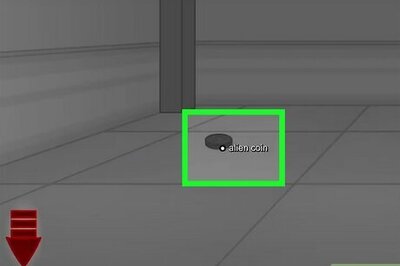
views
Australia is preparing to launch its first clinical trial involving faecal transplantation to treat blood cancer patients who have experienced major problems following bone marrow transplantation, reports say.
Graft-versus-host disease (GVHD) occurs when immune cells in a donor’s bone marrow (the graft) attack the organs and tissues of the recipient (the host). GVHD is especially dangerous for those who have had a bone marrow transplant to treat cancer, according to a report by New Atlas.
“A bone marrow transplant can be a double-edged sword. It saves the lives of people with aggressive blood cancers but then can take their lives by causing GVHD, which is heartbreaking,” Dr Andrea Henden, a clinician-scientist at QIMR Berghofer Medical Research Institute and doctor at the Royal Brisbane and Women’s Hospital told the publication.
Traditional therapies do not work for patients who develop GVHD in their gut, the report explains. This is where faecal microbiota transplant (FMT) comes in sometimes known colloquially as “poop transplant,” which is intended to restore gut health.
But how does a ‘poop transplant’ work?
A faecal transplant from a healthy donor stimulates the recipient’s body to produce beneficial bacteria, which can treat some illnesses and lessen the severity of certain gut health issues.
Millions of bacteria live in the gut in a delicate balance. When these bacteria grow out of balance, a person may experience diarrhoea and other digestive issues, as per a report by Medical News Today.
In rare circumstances, medicines used to treat gastrointestinal illnesses can kill beneficial bacteria. For example, approximately 20% of people who take antibiotics for Clostridium difficile, a common bacterial stomach infection that causes diarrhoea, relapse. This recurrence could be related to drugs altering the gut microbiota, in which case restoring healthy bacteria by faecal transplant could be beneficial.
How is a fecal transplant done?
In most circumstances, a doctor will use a colonoscope to deliver the donor faeces to the recipient. A colonoscope is a small, flexible tube that they can put into the rectum into the colon, the report says. People are frequently given sedative medicines prior to the treatment so that they do not experience any pain or discomfort.
Instead of utilising a colonoscope, another method involves injecting liquid faeces through an enema.
Faecal transplants date back more than 1,700 years in ancient Chinese medicine, according to the report. Previously, this treatment required ingesting a liquid suspension of another person’s faeces – a highly dangerous approach. Faecal transplants are now sterile and safe, and there is a growing corpus of data to back them up.
Important Role of Gut Microbes
Microbes are microscopic organisms that are beneficial to your health and play a crucial role in keeping you healthy, according to a report by Frontiers.
According to the report, we are microbe-free in the womb and begin to accumulate microbiota at birth. Following birth, humans are seeded with microorganisms from their mothers and their surroundings. We get colonised by different types of bacteria throughout our lives, depending on what foods we eat, where we live, how much we exercise, and even whether or not we have a cat or a dog. As a result, our bodies are intricate ecosystems. We provide a home for our microbiota, and they in turn help to keep us safe and healthy.
The majority of our microbiota live in our gut. Bacteria are the most numerous component of the gut microbiota. Gut bacteria aid in the digestion of food, the absorption of vitamins and nutrients, the protection of our bodies from pathogens, and the training of our immune systems to prevent allergies, asthma, and other immune dysfunctions. Gut bacteria can even convey messages to our brains, causing mood and behaviour changes, the report explains.
Read all the Latest Explainers here




















Comments
0 comment